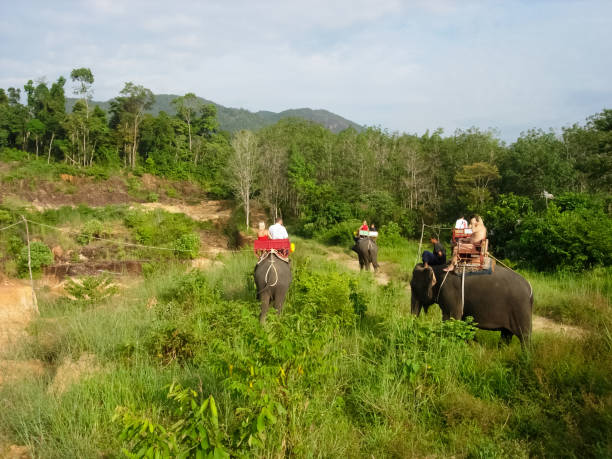15 SIMPLE TRAVEL SAFETY TIPS EVERYONE SHOULD KNOW
There are always stories about people taking advantage of travelers, whether they be identity thieves or drive-by purse snatchers.
My travels have been very uneventful. I have never experienced any serious problems. The vast majority of travelers won’t be harmed by pick-pocketing. These safety tips are something I keep in mind whenever I travel.
These 15 easy and simple safety tips will help you plan your next trip.
You can also check out this trip planning guide and which are the safest places for travel.
15 easy travel safety tips that everyone should know
1.Don’t wear flashy jewelry.
You can make yourself a target for robbery by wearing flashy, expensive jewelry. Avoid it, friends!
2.Be responsible
This is one of the essential safety tips for travelers.
Many people love to explore the local nightlife when they travel. There is nothing wrong with this. It’s essential to be responsible when traveling.
You are more likely to be lost when you are away from your home and end up in dangerous neighborhoods. Being drunk can make you a target for fraud, robbery, or worse.
Ladies, don’t forget to remember the golden rule for safe drinking in public: Keep an eye on what you drink!
3.Make intelligent decisions about your money.
Any reliable travel safety info source will say that carrying large amounts of cash is a bad idea. Instead, you should open an international account with a credit card company or bank so that you can access local ATMs. You don’t have to withdraw large sums of cash immediately. Instead, keep the majority of your cash safe in your hotel or hostel. Only take what you need that day.
Avoid using ATMs that are not attached to banks. These are less likely to be tampered with.
Keep all your money out of one location. You should keep your cash and credit cards in at least three places, so you can stay safe if one of them is stolen.
4.Beware of scams that are very popular.
To find out what local scammers are up to, research the area you’re planning to visit. There are many scams, from RFID scanners to using children to win your sympathy. These scams are less likely to happen if you have been warned about them.
5.Get the emergency number.
Before you leave for your destination, make sure to check the emergency number. Before you travel, it’s a good idea that you look up the nearest embassy in your destination country. These numbers can be written down or saved in your phone for quick access in case of emergency.
6.Make sure you have the right bag.
Cross-body bags are safer than hand or shoulder bags. They can also prevent others from reaching for your bag while you drive or run. Many bags are made for travelers and include RFID blocking, locking zippers, and slash-proof straps. Choose a bag that suits your needs and preferences.
7.Use travel locks to protect your belongings.
If you are planning to stay at a hostel, it is a good idea to bring your own lock. Even if you don’t plan to stay in a hostel or other similar accommodation, a lock can be used to secure your bag to your chair or seat while dining or transiting. This will keep your valuables protected from theft.
8.Keep digital copies of important documents.
Your passport is the most important thing you have when traveling. A digital copy will make it easier to replace a lost passport.
9.Blend in
Tourists are more likely to be scammed because they tend to have more considerable cash and valuables. Avoid being an obvious tourist.
Be like the locals. Don’t stop in the middle streets taking photos. And don’t make it evident that you are lost. To get directions or a map, ask at a cafe or shop.
10.Use reputable transportation companies.
Before you travel, research which taxi companies are trustworthy and only use them. Before you ridesharing with an app such as Uber or Lyft to get around, make sure you double-check the vehicle information of your driver and verify their name.
11.Keep in touch with family and friends often.
Let someone know what your plans are before you go. Each day make it a habit to check in with a friend or family member at the end of each day.
This can be a hassle, but it is better to be safe than sorry. If you know where you are supposed to be, it will make it easier to get help if something wrong happens.
12.Ask your neighbors for their advice.
Ask for suggestions about safe neighborhoods when you check into a hostel or hotel. Also, mark areas to avoid on your map.
13.Apps for emergency alerts
Many apps are available that provide safety information to help travelers stay safe.
- Sitata alerts users of potential travel disruptions and dangers in real time. It offers tips on avoiding scams and assists users in finding nearby hospitals.
- Smart Traveler is an official U.S. State Department app designed for travelers. It has many valuable features, such as alerts, travel advisory notifications, and location information for U.S. embassies. There are likely similar apps available for citizens from other countries. However, I need help finding information online about them.
14.Be aware of what’s around you.
Pay attention to what is going on around you, whether you’re in a busy tourist spot or walking down a quiet street.
People who are disengaged or distracted from their surroundings are often the best targets for would-be criminals. This is especially important for solo travelers, particularly solo women.
15.Trust your gut instincts.
There is a reason why someone or something makes you feel uncomfortable. Our subconscious often picks up on things we don’t know about, and this is where our “gut feelings” originate. Pay attention to these feelings. These feelings will help you to stay safe.
These are some simple safety tips to help you travel safely. Now it’s time for you to explore the world.




Post Comment